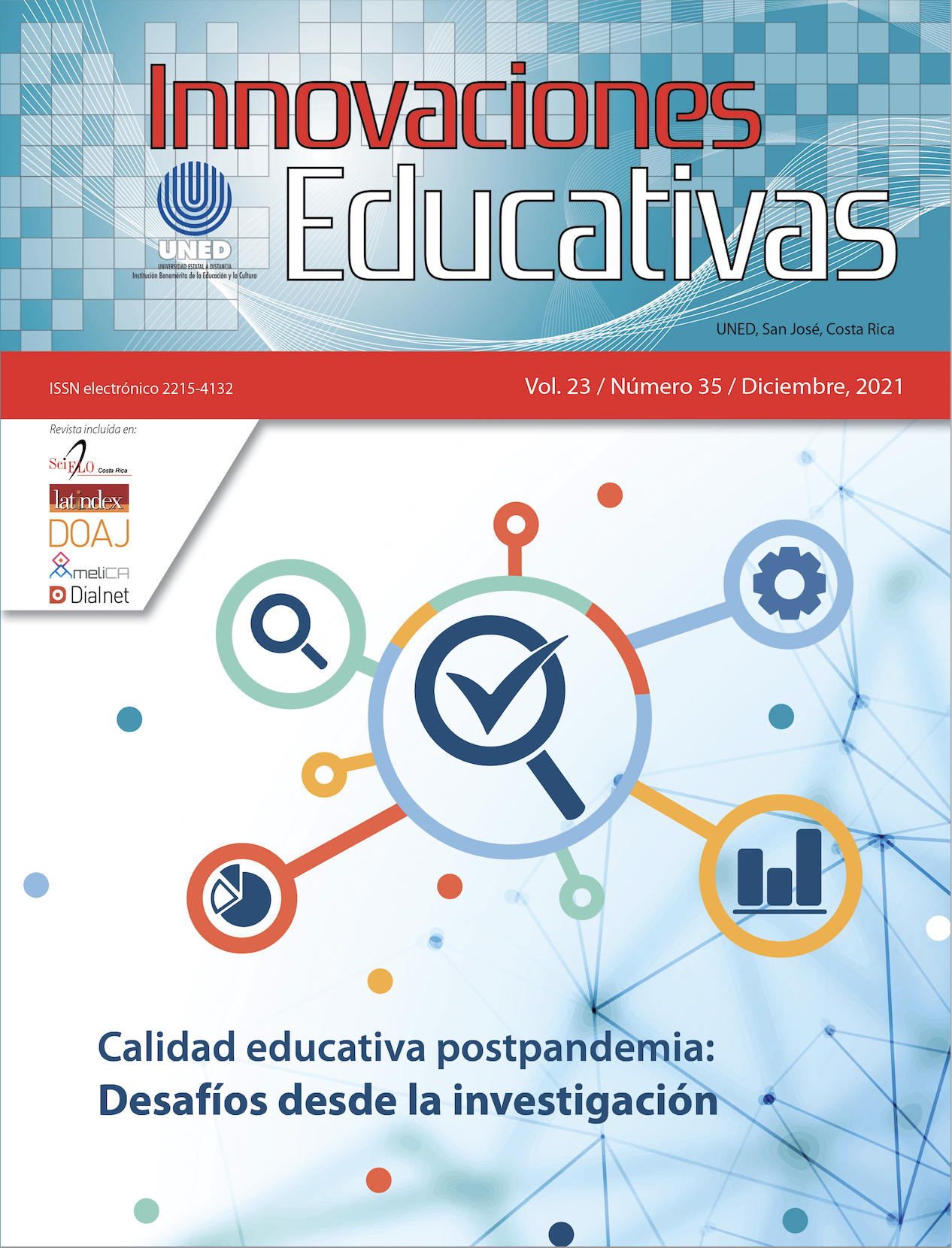Opinions about the self-evaluation processes for accreditation purposes: The view of the Self-evaluation Commissions of the Escuela de Ciencias de la Educacion of the Universidad Estatal a Distancia, Costa Rica
DOI:
https://doi.org/10.22458/ie.v23i35.3876Keywords:
Self-assessment, evaluation, accreditation, quality of higher education, education, distance educationAbstract
The Self-Assessment Commissions (CAE) play a leading role in the development of the self-assessment processes, for accreditation purposes, carried out by the undergraduate and postgraduate careers of the School of Education Sciences (ECE), which have with the accreditation granted by the National Accreditation System for Higher Education (SINAES) of Costa Rica; Therefore, to demonstrate this role, the opinions of the people who make them up were investigated, about the work methodology, participation and communication, and the competencies and training of these commissions. The methodological option selected to describe the opinions was quantitative, for which a questionnaire was used. The results reflect a positive perception towards the raison d'être and the impact of the self-evaluation processes, in the quest to achieve accreditation. There are slight differences in opinions, concerning the methodology; Although, people consider the methods, techniques, and resources used to collect information to be reliable and valid; They also question its quantitative and limiting character for the participation of the protagonists, as in the case of teachers and students. Furthermore, they argue that the methodology is poorly adjusted to the UNED context. Regarding the participation and communication that is generated; as well as with the competencies and training of the CAE, results are shown those show aspects that also need to be addressed.
References
Bernal, C. (2016). Metodología de la Investigación. Colombia: Person.
Bezies, P.; Elizalden, L. y Olvera, B. (2012). Recuento metodológico del proceso evaluativo docente en la UAEH. Un estudio de Metaevaluación para visualizar y comparar el sistema. Revista Iberoamericana de Evaluación Educativa, 5(2), 10-25.
Calaf, R.; San Fabián, J. y Gutiérrez, S. (2017). Evaluación de programas educativos en museos: una nueva perspectiva. Bordón Revista Pedagógica, 69(1), 45-65.
Dopico, I. (2003). Metaevaluación ¿Por qué y para qué? Revista cubana de educación superior, 23 (3), 43-58. Recuperado de https://dialnet.unirioja.es/servlet/articulo?codigo=2406220
Hernández, R.; Fernández, C., & Baptista, P. (2010). Metodología de la investigación. México D.F.: McGraw Hill.
IGESCA. (2019). Guía para la conformación de las Comisiones de Autoevaluación (CAE). Recuperado de https://www.uned.ac.cr/academica/images/igesca/materiales/guia-conformacion-comisiones.pdf
Sacristán, D. (2018). Informe de pasantía: metaevaluación del proyecto curricular especialización en gerencia de proyectos educativos institucionales de la Universidad Distrital Francisco José Caldas en el periodo 2010-2016: factor egresados.
SINAES. (2021). SINAES. Recuperado de
https://www.sinaes.ac.cr/universidades/universidad-estatal-a-distancia/?categoria=
Stufflebeam, D. (1987). Evaluación sistemática. Guía teórico y práctica. Paidós: Madrid.
Zamorano, M. y Ficcardi, A. (2010). Sujetos y colectivos institucionales. Percepciones y expectativas frente a procesos de autoevaluación en las instituciones universitarias. Congreso llevado a cabo en el X Coloquio Internacional sobre gestión universitaria en América del Sur, Mar de Plata, Chile.
Zavala, M. Urbina, B. y Alvarado, E. (2017). Metaevaluación de la calidad de la atención de enfermería en un hospital público de San Luis Potosí, México. Revista Enfermería Instituto Méxicano Seguro Social, 25(2), 85-93

